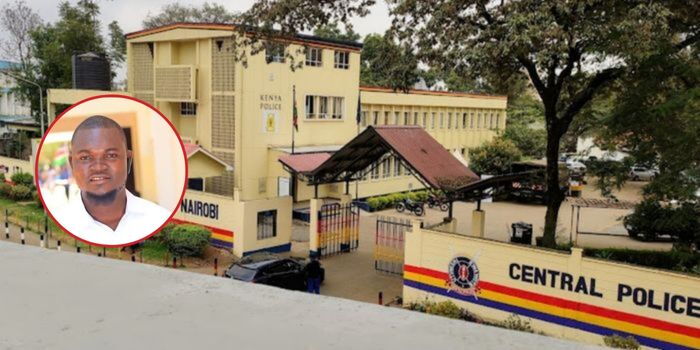A significant breakthrough has been made in the chilling murder of Kenyan blogger Albert Ojwang’, whose death has sparked outrage across East Africa. On Thursday, June 12, a police officer from Nairobi’s Central Police Station was arrested in connection with the case. This marks the first official arrest since Ojwang’s body was discovered under mysterious circumstances, triggering a wave of demand for accountability, transparency, and justice.
The arrest was confirmed by a memo seen by Kenyans.co.ke, which stated:
“Please be informed that an officer of Central Police Station Nairobi, was arrested today, 12/06/2025 and placed in custody at Capitol Hill Police Station by officers from the Internal Affairs Unit (IAU) and the Independent Policing Oversight Authority (IPOA).”
This development follows an intense investigation led by IPOA, whose findings were presented before the Administration and Internal Security Committee earlier this week.
On Wednesday, June 11, the authority had already released the names of six officers who were allegedly involved in Ojwang’s controversial arrest at the Leaders Centre in Homa Bay County on Friday, June 7.
However, the officer arrested on Thursday was not among those initially named by IPOA’s Vice Chairperson Ann Mwangi during a Senate briefing. This has raised even more questions about the depth of the cover-up and who else might be involved.
At the center of the investigation are serious irregularities in the handling of Ojwang’s detention: Officers allegedly failed to officially book him when he was brought in on June 7.
CCTV digital video recorders (DVRs) were suspiciously tampered with, the discs were swapped on June 8, just hours after his arrival at the station. IPOA Chairperson Issack Hassan confirmed the change occurred at precisely 07:23:29 and 07:23:48 AM.
CCTV cameras were also found to have been unplugged, leaving no footage of the critical hours when Ojwang was held in custody.
Despite an official record stating that he was booked at 9:35 PM, discrepancies between logs, DVR timestamps, and witness testimonies suggest a calculated effort to erase the truth.
Kenya’s Inspector General of Police Douglas Kanja further confirmed that technical experts are currently analyzing the CCTV hardware in hopes of reconstructing erased footage that could be key to unlocking the full picture of what transpired that night.
Albert Ojwang’ was more than just a content creator, he was a voice for the voiceless. His online presence challenged authority, exposed injustice, and gave ordinary citizens a platform. His death has now become a rallying point for bloggers, journalists, civil society, and international observers calling for justice and police accountability in Kenya.




